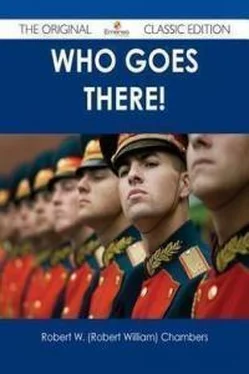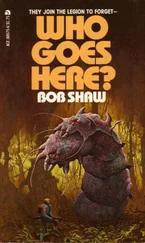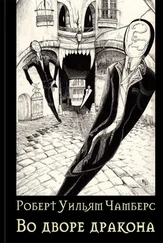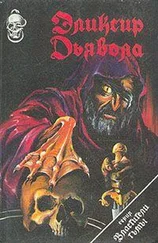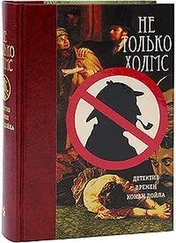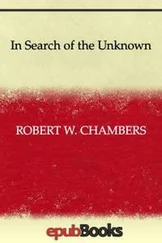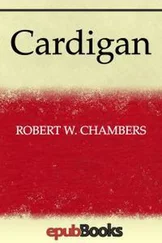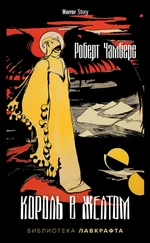Роберт Чамберс - Who Goes There!
Здесь есть возможность читать онлайн «Роберт Чамберс - Who Goes There!» весь текст электронной книги совершенно бесплатно (целиком полную версию без сокращений). В некоторых случаях можно слушать аудио, скачать через торрент в формате fb2 и присутствует краткое содержание. Год выпуска: 2014, Издательство: epubBooks Classics, Жанр: Историческая проза, на английском языке. Описание произведения, (предисловие) а так же отзывы посетителей доступны на портале библиотеки ЛибКат.
- Название:Who Goes There!
- Автор:
- Издательство:epubBooks Classics
- Жанр:
- Год:2014
- ISBN:нет данных
- Рейтинг книги:4 / 5. Голосов: 1
-
Избранное:Добавить в избранное
- Отзывы:
-
Ваша оценка:
- 80
- 1
- 2
- 3
- 4
- 5
Who Goes There!: краткое содержание, описание и аннотация
Предлагаем к чтению аннотацию, описание, краткое содержание или предисловие (зависит от того, что написал сам автор книги «Who Goes There!»). Если вы не нашли необходимую информацию о книге — напишите в комментариях, мы постараемся отыскать её.
Who Goes There! — читать онлайн бесплатно полную книгу (весь текст) целиком
Ниже представлен текст книги, разбитый по страницам. Система сохранения места последней прочитанной страницы, позволяет с удобством читать онлайн бесплатно книгу «Who Goes There!», без необходимости каждый раз заново искать на чём Вы остановились. Поставьте закладку, и сможете в любой момент перейти на страницу, на которой закончили чтение.
Интервал:
Закладка:
"As for the others, they will not come to Antwerp with me now. They have seen 'red' again; and in spite of all I could do they have started back toward Lesse to 'drive' Uhlans as they saw the wild game driven."
The girl shivered.
Guild made a hopeless gesture: "It means the death of every man among them. The Uhlans will do the hunting and the driving, not the poor, half–crazed peasants…. It means the end of Lesse and of every man who had ever called it home."
The hussar appeared at the door. Guild looked up, returned the precise salute, and his careworn features softened as he listened to the instructions and the parting message from the now unconscious officer above.
There was a silence, then:
"Karen," he said quietly, "are you ready?"
"Yes."
The hussar asked whether there was luggage, and learning that there was he sent the chauffeur in to bring out Guild's box and Karen's suit–case and satchel.
The girl ran upstairs to the sick room. They admitted her.
Guild was standing by the car when she returned, a drooping, listless figure, her handkerchief pressed to her face. He gave her his arm and aided her into the car. The hussar stepped in beside the chauffeur.
Dawn was just breaking behind the house; the evergreens stood out, massive and black against the silvering east.
As the car moved slowly out of the gravel circle the first bird twittered.
Guild bent over the girl beside him: "Is he still unconscious?"
"Yes."
"Is there any chance?"
"They don't know. It is the lungs. His body is all crushed in―"
She rested her cheek against his shoulder, weeping, as the great grey car rushed on through the pallour of early dawn.
Chapter XXV
Who Goes There!
Stretched out flat on the seat of a railway carriage, her tear–marred face buried in her arms, her dishevelled hair tumbled around her neck and shoulders, Karen lay asleep. In that car all the other compartments seemed to be full of Saxon reserve artillery officers, their knobbed helmets shrouded in new grey slips, their new, unwrinkled uniforms suggestive of a very recent importation from across the Rhine.
Ahead, cattle cars, ore cars, and flat cars composed the long train, the former filled with battery horses and cannoniers, the latter loaded with guns, caissons, battery waggons, forges, and camp equipment, all in brand–new grey paint.
Except when the train stopped at some heavily guarded station, nobody came to their compartment. But at all stations officers opened the doors and silently examined Guild's credentials—energetic, quick–moving, but civil men, who, when the credentials proved acceptable, invariably saluted his uniform with a correctness impeccable.
Nevertheless, before the train moved out again, always there was a group of officers gazing in polite perplexity at the green jacket and forage cap and the cherry–coloured riding breeches of a regiment which, they were perfectly aware, was already in the saddle against them.
At one station Guild was able to buy bread and cheese and fruit. But Karen still slept profoundly, and he did not care to awaken her.
From the car windows none of the tragic traces of war were visible except only the usual clusters of spiked helmets along the line; the inevitable Uhlans riding amid the landscape; slowly moving waggon–trains pursuing roads parallel to the railway; brief glimpses of troops encamped in fields. But nothing of the ravage and desolation which blackened the land farther south was apparent.
In the latitude of Liège, however, Guild could see from the car windows the occasional remains of ruined bridges damming small streams; and here and there roofless and smoke–stained walls, or the blackened debris of some burnt farm or factory or mill.
But the northern Ardennes did not appear to have suffered very much from invasion as far as he could make out; and whether the region was heavily occupied by an invading army he could not determine from the glimpses he obtained out of the car windows.
The line, however, was vigilantly guarded; that he could see plainly enough; but the sky–line of the low rolling country on either side might be the limits of German occupation for all he could determine.
Two nights' constant wakefulness had made him very sleepy. He drowsed and nodded in his corner by the shaking window, rousing himself at intervals to cast a watchful glance at Karen.
She still slept like a worn–out child.
In the west the sun was already level with the car windows—a cherry–hued ball veiled slightly in delicate brown haze. The train had stopped at a siding in a young woodland. He opened the window to the fresh, sweet air and looked out at the yellowing autumn leaves which the setting sun made transparent gold.
It was very still; scarcely a sound except from very high in the air somewhere came a faint clattering noise. And after a while he turned his head and looked up at a flight of aeroplanes crossing the line at an immense height.
Stately, impressive, like a migration of wide–winged hawks, they glided westward, the red sun touching their undersides with rose. And he watched them until they became dots, and disappeared one by one in mid–heaven.
Presently, along the main track, came rushing a hospital train, the carriages succeeding one another like flashes of light, vanishing into perspective with a diminishing roar and leaving in its wake an odour of disinfectants.
Then the train he was on began to move; soldiers along the rails stood at attention; a company of Uhlans cantered along a parallel road, keeping pace with the cars for a while. Then the woods closed in again, thick, shaggy forest land which blotted out the low–hanging sun.
He closed the window, turned and glanced at Karen. She slept. And he lay back in his corner and closed his haggard eyes.
The next time he opened them the light in the car had become very dim.
Twilight purpled the woods and hills; dusk was arriving swiftly.
It was dark when, at a way station, a soldier opened the door, saluted, and lighted the lamp in the compartment. The train lay there a long while; they were unloading horses, cannon and waggons; teams were being harnessed in the dark, guns limbered, cannoniers mounted, all in perfect order and with a quiet celerity and an absence of noise and confusion that fascinated Guild.
Presently, and within a space of time almost incredible, the artillery moved off into the darkness. He could hear the rhythmical trample of horses, the crunch of wheels, sabres rattling, the subdued clank and clatter of a field battery on the march. But he could see no lights, distinguish no loud voices, no bugle–calls. Now and then a clear whistle note sounded; now and then a horse snorted, excited by the open air.
The car in which they were was now detached and sidetracked; the long train backed slowly past and away into the darkness.
And after a while another locomotive came steaming out of the obscurity ahead; he heard them coupling it to the car in which he sat. The jar did not awaken Karen.
Presently they were in motion again; the tiled roof of an unlighted railway station glided past the window; stars appeared, trees, a high dark hill to the right.
A military guard came through the corridor, lantern in hand, and told Guild that the car was now entirely empty and at his disposal.
So he rose and went forward where he could look out ahead and see the dull glow of the smokestack and the ruddy light of the furnace.
For a long while he stood there watching the moving silhouettes of engineer and fireman. The sombre red light trembled on the rails and swept the wayside trees or painted with fiery streaks the sides of a cut or glittered along the rocky wet walls of tunnels.
Читать дальшеИнтервал:
Закладка:
Похожие книги на «Who Goes There!»
Представляем Вашему вниманию похожие книги на «Who Goes There!» списком для выбора. Мы отобрали схожую по названию и смыслу литературу в надежде предоставить читателям больше вариантов отыскать новые, интересные, ещё непрочитанные произведения.
Обсуждение, отзывы о книге «Who Goes There!» и просто собственные мнения читателей. Оставьте ваши комментарии, напишите, что Вы думаете о произведении, его смысле или главных героях. Укажите что конкретно понравилось, а что нет, и почему Вы так считаете.
